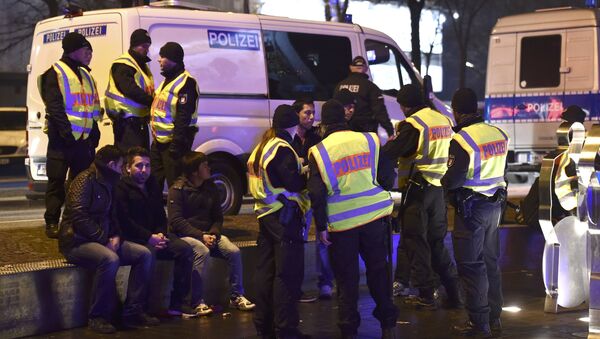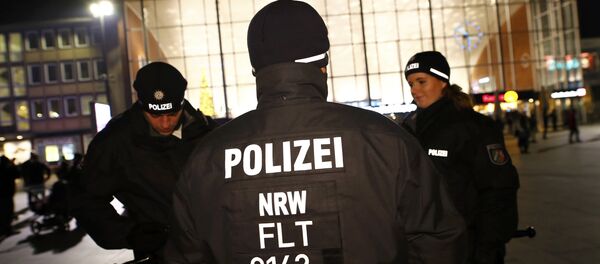Members of the German police union have the impression that "the work of the police is not taken seriously by those with political responsibility," and they experience a "frustrating work day," Kirstein said.
The police are forced to spend a great deal of effort apprehending immigrant offenders "because the necessary cross-border arrangement is not possible to achieve, or only comes into being with a lot of difficulty," Kirstein said.
Many immigrants who are convicted of a crime receive a fine, which they don't pay, and they ignore further punitive measures.
"In a lot of cases that leads to the appearance of more and more people who are known to the police," and police officers find it hard to comprehend that somebody who arrives in Germany seeking refuge is then able to behave in a criminal way "with very few or consequences," Kirstein said.
The police union chief called on politicians to do more to help police deter, apprehend and deport criminals from Germany.
"Here politicians have to take their share of responsibility and send a clear message," which defends the state of law and potential victims, he said.
"This is our task and we need the necessary means and clear signals from politics and the judiciary that our work is valued and respected. People come to Germany because it is good the way it is. Therefore, we have to keep it that way."
Kirstein said that punishments handed down by the courts should be orientated towards the maximum, rather than the minimum penalty.
On Tuesday he told Sputnik Deutschland that the full weight of the law is rarely applied by German courts.
"There is not always only the minimum penalty, but also the maximum penalty. We often have the impression that courts are more oriented to the minimum penalty."
"Colleagues report this again and again. It gives the impression that not much is happening and leads to understandable frustration among colleagues," Kirstein said.
In December the Stuttgarter Nachrichten reported the frustration of German police regarding migrants to Germany who are repeat offenders but allowed to remain in the country.
Migrant career criminals commit dozens of crimes including drug dealing, theft and assault, inflicting grievous bodily harm; they remain at liberty despite a string of convictions.
"You just can't get rid of such people. They come to Germany specifically to commit crimes, and always reappear. For them, the world is a self-service shop. This annoys us madly," a German police official told the newspaper.
"We are dealing more and more with a strictly Islamic way of thinking or a completely missing sense of right and wrong," the female officer said, and added that as a woman she experience a complete lack of respect from these criminals.
Another colleague said that the threat of a few months in jail constitutes no deterrent for these offenders.
"It doesn't matter to them if they go to jail for a few months. He (the criminal) says that when he gets out, he'll be fine," the officer explained.
According to statistics from Germany's Federal Criminal Police Office (BKA), the amount of crime committed by migrants has soared in recent years.
In 2014, 617,392 non-Germans were suspected of committing criminal offenses, an increase of 14.7 percent compared with the previous year.
In 2015 a total of 2,369,036 individuals in Germany were suspected of crime, of whom 38.5 percent were non-Germans. In total there were 911,864 non-German suspects, a staggering 47.7 percent increase compared with the previous year.
Never miss a story again — sign up to our Telegram channel and we'll keep you up to speed!





